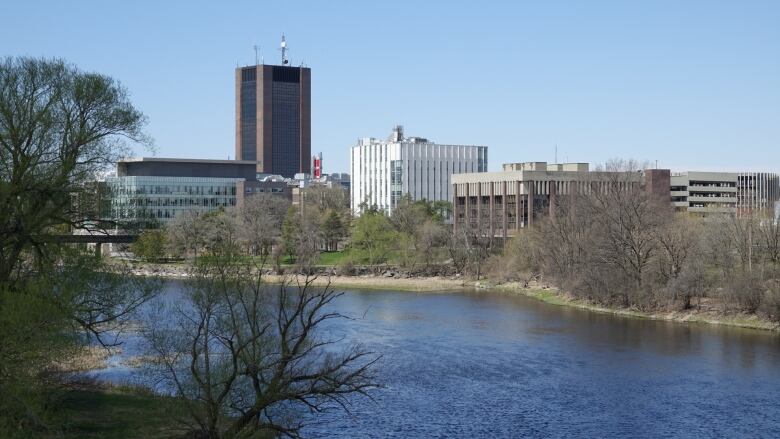Apps monitor COVID-19 as university students return to campus
Carleton University uses screening system where students check in and out of class

The return to campus at Carleton University includes a daily symptom screening, spot checks of their results, vaccination attestations, and QR code check-ins as students return to class amid concerns about the fourth wave of the COVID-19 pandemic.
Students in residence, commuters, faculty and staff have to complete the daily screening on the cuScreen platform, which results in a green or red pass green meanstheycan safely go to campus, and red means they have to stay home.
The program began rolling out as students moved into residence in late August and already had between200 and 400 pings perminute, according to Sandra Nelson, Carleton's lead on implementing cuScreen.
"We've gone from having just hundreds of people on campus to now thousands," Nelson said.
She said other Ontariouniversities have also gone with web-based tools to respond to requirements for daily COVID-19screening requirements, and Carleton had a challenge given the size.
People are advised to check in and out of locations where they are going to spend 15 minutes or more using QR codes posted nearby.
QR codes help contact tracing, avoid bottlenecks
Greg Aulenback, director of Carleton'sCOVID-19 Response Team, said this helps Ottawa Public Health conduct contact tracing and avoids bottlenecks on campus.
"We didn't want huge lineups waiting to scan QR codes to get into the building, especially if you haven't previously logged into the cuScreen application," Aulenback said.
Members of the Carleton community can now log into cuScreen and report your latest vaccination status.https://t.co/xHvAcYaPML
—@Carleton_UPeople will also have a paper option for screening questions and check-ins on campus if they don't have a compatible cellphone.
Valentina Vera, vice-president of studentissues at the Carleton University Students' Association, said the system will likely require some transition time for students.
"It takes a lot of time to fill out the form, scan a QR code every time you enter or leave a building or office specifically," Vera said.
The system relies heavily on people being honest, though, and that'sconcerning given the Ontario government's recentlylifted class-size restrictions, according to Angelo Mingarelli, president of the Carleton University Academic Staff Association.
The university did say student ambassadors will help encouragepeople to follow public health measures and do"spot-checks" of thecuScreenpasses, andAulenback said those students have been trained to deal with escalating situations and, if necessary, call their supervisor or student safety services.
Nelson said a small number of staff will be verifying information related to vaccine doses, but the university doesn't anticipate it will be a major issue.
The university website said the QR codes aren't used to track location information, but it will check completed self-assessments against campus card activity.

Vaccine passportcan soon be added tocuScreen
Thrive Health, which developed theplatform for the cuScreen system, said the new proof of vaccine documents from Quebec and Ontario can be added to the system, as well as results of rapid testing for COVID.
The health-care technology company also developed a similar system for the University of Toronto last year and created a similar COVID-19 screening tool for the B.C. government.
Co-founder and CEO David Helliwellsaid his company has worked with dozens of universities across Canada to implement similar systems.
"There's a mad rush in the last two or three weeks as the fourth wavebecomes more apparent and some of the regulations have changed," Helliwell said.












_(720p).jpg)


 OFFICIAL HD MUSIC VIDEO.jpg)
.jpg)



























































































